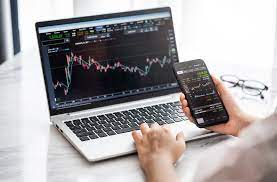
The Risks and Rewards of CFD Brokers
As a new trader, understanding the world of CFD brokers can be quite confusing and overwhelming. A Contract for Difference (CFD) is an agreement between a buyer and a seller to exchange the difference in the value of an asset, such as stocks, currencies, and commodities, between the time when the contract is opened and its closing time. With a CFD, traders can profit from the price movement of the underlying asset without owning it. CFD brokers are financial firms that provide traders with a platform to trade CFDs. In this blog post, we’ll discuss everything you need to know about cfd broker.
What are CFD Brokers?
CFD brokers are financial institutions that offer traders the opportunity to trade Contracts for Difference. These types of brokers operate mainly online, providing sophisticated trading platforms that enable traders to access global financial markets. The most significant advantage of CFD trading is that it offers traders the opportunity to speculate on the price movements of different financial instruments without actually owning them.
How Do CFD Brokers Work?
CFD brokers primarily act as middlemen between traders and the market. Their primary role is to offer a trading platform on which traders can trade different CFD instruments. They provide traders with access to different financial instruments, including shares, indices, and commodities. CFD brokers also generate revenue primarily from the spread between the bid and ask price, as well as from the commissions that traders pay on their trades.
What Features Should You Look for in a CFD Broker?
When selecting a CFD broker, several considerations should be taken into account. One of the most important things to consider is the trading platform they offer. It should be user-friendly, reliable, and capable of providing comprehensive market analysis and trading tools. The broker should also have a good reputation backed by positive reviews and comments from traders. Another critical aspect to consider is the security of the trading platform and the safety of the trader’s funds.
Advantages and Disadvantages of CFD Trading with a Broker
There are various advantages and disadvantages associated with trading CFDs with a broker. One of the benefits of CFD trading is that traders can trade a wide range of financial instruments without actually owning them. This means traders have access to more financial instruments than they would through traditional market trading. Another advantage of CFD trading is that it allows for leveraged trading, meaning traders can trade a more significant amount than they would with their initial capital.
On the other hand, one of the significant disadvantages of CFD trading is the high risk that comes with leveraged trading. This means traders can lose more than their initial investment if a trade goes wrong. CFD trading also comes with a high cost of trading, which includes commissions, spreads, and fees. This adds up to a high trading cost, which can eat into trading profits.
How to Choose the Right CFD Broker for You
Choosing the right CFD broker can be an overwhelming process, especially considering how many are available online. However, taking the time to compare different brokers based on the factors we’ve mentioned can help you select the right one. Some of the essential factors to consider are:
The broker’s reputation and reviews from other traders
The user-friendliness of their trading platform
The trading fees and commissions offered
What financial markets and instruments they offer.
Conclusion:
In conclusion, understanding CFD brokers is a crucial factor that traders need to consider. Choosing the right broker is incredibly important for a trader’s success in CFD trading. It’s essential to consider various factors when choosing a broker, including the broker’s reputation, trading platform, and the fees charged. Remember, successful trading requires discipline and patience, as well as knowledge of the market and trading strategies.